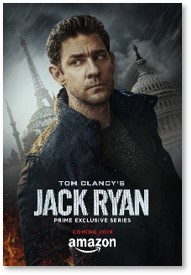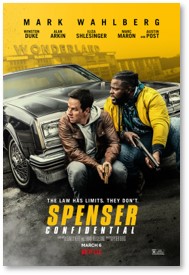I have decided that I want the kind of healthcare we see on TV and in the movies. Oh, I don’t mean what we see on medical shows like ER or Gray’s Anatomy. I mean the dramas and thrillers that allow heroic characters to be grievously wounded and then pop back into action without so much as a bruise or a Band-Aid.
TV must have some great healthcare about which we viewers know nothing.
Tom Clancy’s Jack Ryan
 What brought this to mind recently was watching the last few episodes of Tom Clancy’s Jack Ryan, Season 4. (Warning: Spoilers Ahead)
What brought this to mind recently was watching the last few episodes of Tom Clancy’s Jack Ryan, Season 4. (Warning: Spoilers Ahead)
Our hero Jack, played by John Krasinski, is tortured for information by the villainess who is running a global crime operation. Boiling water is poured over his back followed by a dishful of salt. The hot water doesn’t stay on his skin long, which is good, but it does cover a large area of his back. This would probably cause a first-degree burn: painful but not damaging.
I don’t know what impact the salt would have had on his skin. Still, Jack is up and at it the next day, wearing a tight shirt and showing no sign of pain or even discomfort as he runs, climbs, shoots, and pulls himself into cars.
Jack and Mike Recover
Jack’s wingman, Mike November, (Michael Kelly) takes a rifle shot to the left shoulder. Now, writers often choose shoulders as targets for gunshot wounds because they have no vital organs. What shoulders do have, however, is a lot of muscles, tendons and ligaments that don’t react well to being torn up.
In the real world, where you and I live, this damage would put us in the hospital for a few days to repair the wound. Then we would go through weeks of rest and physical therapy to recover, gradually, the ability to move our arm without pain.
With TV healthcare, however, Mike also swings into action almost immediately. He also looks as good as new while he does the requisite running, climbing, shooting, and pulling himself into cars. He never shows so much as a twitch or a wince.
Real-World Injuries
TV healthcare really rocks. Almost two months ago, I tripped and used my arms to break the fall. Most of the resulting aches and pulls went away in days but the right shoulder is being less cooperative. I’m still getting PT and the shoulder still hurts. I want me some of the healthcare Mike November got.
The TV healthcare trope is widespread in the entertainment world. Here are a couple more examples.
The Hospital Break-Out
Having the hero get wounded adds to dramatic tension and emotional involvement. Staying in the hospital while others deal with the problem does the opposite. Therefore, the hero must leave the hospital before he’s healthy and against all medical advice, so he can save the day while looking fresh as a daisy.
 The hospital break-out usually involves the hero tearing off the various tubes and monitors on or in his body. Usually, this appears to be a painless process although sometimes a little blood drips down an arm for verisimilitude. Those tubes, however, never seem to include a urinary catheter. Now, that would be a real test of manly courage.
The hospital break-out usually involves the hero tearing off the various tubes and monitors on or in his body. Usually, this appears to be a painless process although sometimes a little blood drips down an arm for verisimilitude. Those tubes, however, never seem to include a urinary catheter. Now, that would be a real test of manly courage.
You can see an example of the hospital breakout in the movie Spenser Confidential with Mark Wahlberg as Spenser. I wouldn’t recommend this truly awful movie for any other reason, though. The medical get-away also happens in Tom Clancy’s Jack Ryan, although a different character has to escape.
The Noiseless Bomb
Finally, I offer the noiseless bomb. Here, the good guys find themselves in proximity to a bomb blast. When they dust clears, so do their ears. They can hear and speak just fine, with no dizziness, no ringing in the ears, no sense of disorientation. The good guys know exactly where they are and what happened.
 Of course, the characters are never close enough to the explosion to lose fingers or limbs. If shrapnel does reach them, it will leave only a few small cuts that stop bleeding immediately and never get infected. You see examples of this in many movies and TV shows.
Of course, the characters are never close enough to the explosion to lose fingers or limbs. If shrapnel does reach them, it will leave only a few small cuts that stop bleeding immediately and never get infected. You see examples of this in many movies and TV shows.
On the other hand, I have no doubt that TV healthcare would be able to regrow missing digits if necessary. After all, it has been known to raise deceased characters from the dead so they can make a sequel.
The Impact of TV Healthcare
I understand the reasons why writers inflict damage on their main characters and then minimize the damage later on. It makes perfect sense. What it also does, however, is make me snicker, which is the last thing you want in a drama or a thriller.
TV healthcare may be essential to a show’s plot and the requisite dramatic tension, but it pulls me right out of the story. Instead of following the plot I start thinking how ridiculous that situation is. I think, “C’mon guys. He would never be able to do that in such a short time.” Or: “How can he jump/run/climb like that after being badly hurt?” Suddenly, what’s going on seems far more like fiction than real-world drama.
Still, I wish I could get TV healthcare. I think we all do.
